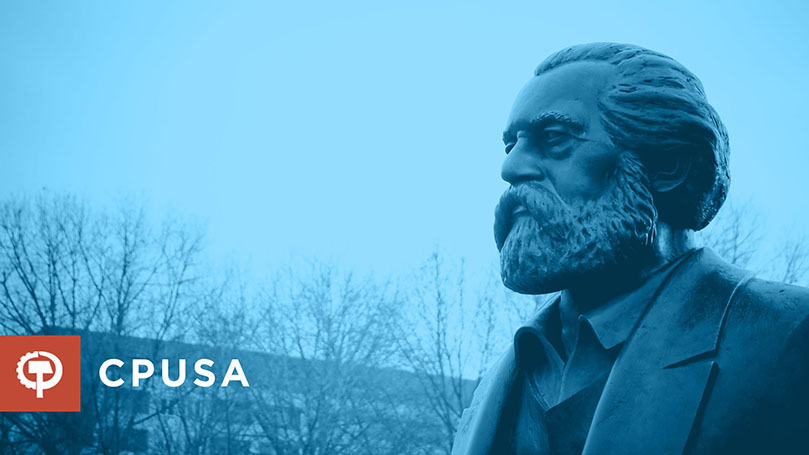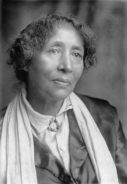
This is a year of significant anniversaries It is the 153rd year of the defeat of the Confederacy and the end of slavery in the U.S; the 73rd anniversary of the defeat of fascism in WWII, the 50th anniversary of the murder of Martin Luther King. Let us use this Marxist IQ to learn from history before our ruling class condemns us to repeat it.
1. Lucy Parsons, after the execution of her husband, Albert Parsons, in 1887, for the Haymarket Riot, events that led to the first international May Day demonstrations in 1890:
a. Campaigned against lynch law and racist terror in the South and racism through the U.S. as a writer, speaker, and organizer organizer of mass demonstrations;

b. Campaigned as a founding member of the IWW against against hunger, poverty and unemployment, leading mass demonstrations in San Franscisco, Chicago and other cities;
c. Like many former IWW member after WWI, allied herself with Communist activists in support of sit down strikes and Civil Rights groups in the upsurge of the 1930s;
d. All of the above.
2. The first May Day demonstrations by labor and socialist organizations were scheduled for May 1,1890, to commemorate the Haymarket demonstrations and trial in the U.S and call for legislation by governments through the world to establish the eight hour day. Today a 21st century slogan in the spirit of May Day would be:
a. Working people’s rights and lives matter through the world;
b. Defend free trade agreements to secure workers’ rights;
c. Defend freedom from Afghanistan to Ukraine;
d. People of all countries unite to abolish all income taxes.
3. If Marx and Engels were alive on this May Day they would in all probability conclude that:
a. The working class had become the middle class and believes that they can become business owners;
b. Marxism was no longer relevant since capitalism had changed and today is the only way to advance full employment and social welfare;
c. “Globalization” is the basis of a deepening global economic crisis, not a solution to that crisis, but one that functions as capitalism’s “gravedigger;”(correct)
d. Capitalism and socialism were increasingly indistinguishable and will merge with each other.
4. Events in Eastern Europe, the former Soviet Republics, and Russia on this May Day would remind Lenin of:
a. The imperialist powers manipulating the Czarist autocracy to control Russian natural resources and military power;
b. The use of nationalist groups as pawns to accomplish imperialist goals;
c. The arrogance and the ignorance with which the imperialist powers launched WWI over conflicts they created but could not control;
d. All of the above.
5. Georgi Dimtrov on this May Day, given his contributions to Marxism as theory and practice, would call upon the Communists of all countries to:
a. Unite on a strategy to unite the masses and defeat the fascist danger and fight the capitalist class enemy;
b. Organize revolutionary guerilla armies through the world;
c. Launch a frontal assault on the state;
d. Call for the expulsion of the United States from the United Nations
6. If Friedrich Engels, who lived to see the early May Day demonstrations, were alive on this May Day, he would repeat his famous prediction on the choices humanity faced in the future, especially in regard to the Trump administration’s global policies:
a. The choice between idealism or materialism;
b. The choice between nationalism or internationalism;
c. The choice between liberalism or conservatism;
d. The choice between socialism or barbarism.
7. The first nation to declare May Day a national holiday was:
a. The Republic of Mexico;
b. The Irish Free State;
c. The Union of Soviet Socialist Republics;
d. The Kingdom of Hawaii.


 Join Now
Join Now